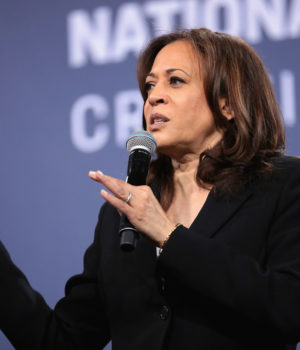Written by Joey Slusher
The race for the Democratic nomination has seen major changes this week as the field continues to change and poll numbers shift from one candidate to another. Recently two new candidates entered the race- former governor of Massachusetts Deval Patrick, billionaire and former mayor of New York City and newspaper mogul Michael Bloomberg. These candidates came into the race with only two months to go before the infamous Iowa caucus and New Hampshire primaries, both of which are important to any Democrats bid for the presidency this election. As of yet, neither have qualified for the debate set to take place in California later this month.
An even more recent development, Senator Kamala Harris (D-CA) dropped out of the race on Tuesday, December 3. Her exit was preceded by a number of weeks where Harris was unable to maintain enough funding to maintain a strong campaign. Her poll numbers had plummeted in recent weeks as well.
Harris, upon her entrance into the campaign on Martin Luther King Jr.’s birthday, hadbbeen one of the top tier candidates. She only rose in popularity after proving herself during the first debate last June, but since then her campaign has stagnated and hit a wall in recent months.
Many attribute the downward spiral to her inability to define her own policies and argue how they could be better than other policies proposed by candidates like Bernie Sanders, Elizabeth Warren, and Joe Biden. Biden’s exit leaves California open where Harris, as one of the state’s senators, was very popular.
In the days since her exit from the race, a number of campaigns have actively sought out the endorsement of California State Assembly Speaker, Anthony Rendon, who had formerly endorsed Harris. Harris’ supporters will now move to find new candidates, and many predict they will fall into the Biden or Cory Booker camp, as both candidates aligned with much of Harris’ message, but it is too early to predict major poll shifts.
The final update on the 2020 race came only a day before Harris’ announcement. Steve Bullock, the governor of Montana and presidential hopeful, also pulled out of the race. Bullock had been a longshot candidate since he entered the race, but stayed in until this week running on a moderate platform.
Throughout his run, Democratic leadership in the Senate had been pushing Bullock to exit the presidential race and enter the Montana Senate race against incumbent Republican Senator Steve Daines, but just as in the past, Bullock has ruled out a Senate run stating in an interview that he has executive experience not legislative, and that there is more to be done during his final year as Governor. His decision not to make himself a candidate has greatly hurt the Democrat’s chances of taking the state, and possibly the Senate in the 2020 election.




